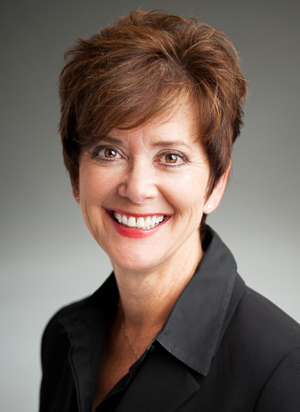About the Richmond Consolidated Service Center
The Richmond Consolidated Service Center is one of 14 field-based supply chain operations that support primarily HCA operations and in some cases, non-HCA facilities. The CSC provides support in supply and pharmacy distribution and logistics, purchasing and accounts payable transactions, clinical value analysis, contracting, clinical pharmacy and central order entry pharmacy administration and support service coordination to 14 acute care facilities and one behavioral health facility in Virginia, Kentucky, New Hampshire and Indiana. The CSC provides transaction services, purchasing and accounts payable activities as well as financial reporting support for HCA facilities in four other divisions in Florida, Georgia and South Carolina. It also provides business continuity support along with sister centers in Dallas, Texas, and Nashville, Tennessee, in the event of weather or other situations necessitating backup support.
Lynn Cook
CEO
Richmond Consolidated Service Center
HealthTrust Supply Chain
Richmond, Virginia
A native of “Wild, Wonderful West Virginia,” Lynn Cook graduated from the medical technology program at West Liberty State College, and became a staff medical technologist at Wheeling Hospital. She also served as a medical technologist with a major reference laboratory before becoming director of clinical laboratory services for a consolidated laboratory serving multiple HCA Healthcare hospitals in Richmond, Virginia. In 1999, HCA made a commitment to consolidate revenue cycle, supply chain and other back-office functions. Given her working relationship with the revenue cycle team, Cook was asked to serve as project director for the revenue cycle project in Richmond. She became chief operating officer of the revenue cycle services team, then vice president of transitional operations, working with client facilities on revenue cycle. In May 2016, she was named CEO for HealthTrust Supply Chain for HCA Healthcare’s Capital Division. She and her husband, Paul, live in Richmond. They have three children.
Journal of Healthcare Contracting: Can you describe the most challenging and/or rewarding supply-chain-related project in which you have been involved in the past 12-18 months?
Lynn Cook: That would be the comprehensive, collaborative and integrated response HealthTrust developed in response to drug, fluid and general supply shortages caused by catastrophic weather events in Puerto Rico, Texas and Florida last year. Distribution, supply chain, facility operations, pharmacy, procurement, clinical resources, chief medical officers, nursing staff and physicians all contributed to ensure the continuity of care. Their efforts included monitoring of product supply levels, identifying substitutes, and creating new protocols. Daily inventory and communication protocols were established, allocation approval hierarchies were implemented, and swift physician and nursing education and adaptation plans contributed to the success. Some of the changes have been adopted as new standards of care and will support improved drug administration management.
JHC: Please describe a project you look forward to working on in the next year.
Cook: I am excited about the opportunities HealthTrust Supply Chain has to collaborate with our clinical and administrative teams in the support services areas, such as food and nutrition, linen, valet, environmental services, waste management, asset management, etc. Our supply chain organization is poised to assist and provide expertise to our hospitals, from analysis of best practices, to contracting, performance monitoring and patient satisfaction monitoring. Expansion into these areas can facilitate identification of options, provide standardization where applicable, and leverage economies of scale.
I continue to be excited about the increasing integration of Supply Chain and clinical services. We are fortunate to have many clinicians on our team, including nurses, pharmacists, and surgical services specialists. These experts collaborate with vendors as well as the procurement, contracting and logistics teams to identify solutions and opportunities to our clinical teams. Additionally, they work side by side with the nurses, physicians, chief medical officers and facility finance officers to bring products of the highest quality to caregivers and ultimately, the patients we all serve.
JHC: How have you improved the way you approach your profession in the last five to 10 years? Did you have any help doing so, or was there any particular incident that was particularly significant?
Cook: I’ve had many wonderful mentors in my career and I am indebted to each of them for their unique blend of wisdom, candor and patience. Hopefully I’ve woven lessons from them into my daily work. I also hope that I’ve made improvements by employing a stronger focus on empathy and compassion.
Healthcare touches all of us. Navigating the system can be intimidating, particularly for those with little or no exposure to a facility and those who are in physical or emotional pain. Demonstrating sensitivity and awareness hopefully lessens the stress for our patients and their families.
I also believe that advances in our ability to analyze and interpret financial and quality data improve the delivery of healthcare. Fostering a commitment to data integrity and to improving the analytical and interpretative skills of our clinical and non-clinical teams provides the foundation for supply chain to be a strategic asset to providers and generates opportunities for all healthcare professionals.
JHC: In your opinion, what will be some of the challenges or opportunities facing the next generation of supply chain professionals? What should they be doing now to prepare to successfully meet those challenges and opportunities?
Cook: I think our challenges fall into three main categories: 1) talent recruitment, 2) increased cost associated with medical device innovation and advancing individualized pharmaceutical therapies, and 3) continued potential supply chain disruption due to weather, regulation, etc.
These same challenges should also be considered opportunities to secure and develop the best talent, provide better patient care and mitigate supply chain disruptions. Proactive steps that we can take include 1) enhancing our development programs, 2) maximizing commodity standardization opportunities to allow funding for advancing devices and pharmaceuticals, and 3) continued clinical integration to identify alternatives and manage disruptions. These steps are stated broadly and will require robust, detailed work, but that work will set a strong foundation for the future.

